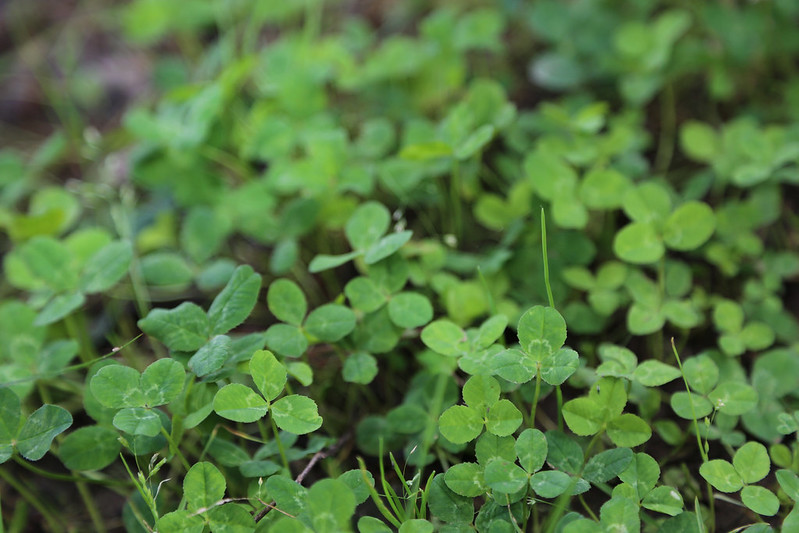Cool, rainy spring boosts clover
By Mary Hightower
University of Arkansas System Division of Agriculture
Fast facts
-
- Cool, wet spring a boon to clover
- Clover can help offset nutrient losses in other forage
(284 words)
PIGGOTT, Ark. -- While that first cutting of fescue hay awaits rescue in rain-sodden meadows, Arkansas’ cool, rainy spring has one bright side: clover.
Andy Vangilder, Clay County extension staff chair for the University of Arkansas System Division of Agriculture, said that while fescue quality declines, “we do, however, have a lot of clover this year which is still in pretty good shape. I call this a clover year where our pastures are filled with clover where there might have only a little the year before.”
John Jennings, professor of forages for the University of Arkansas System Division of Agriculture, said that 2015 is a good clover year due primarily to how the winter ended and spring started.
“In years when pasture grass starts slow or is held back by weather conditions, clover seems to thrive,” he said. “March was cold and wet so pasture greenup was late and grasses were slow to break dormancy.
“The lack of grass competition allowed clover to get a head start when temperatures finally warmed in April,” Jennings said.
The legumes have high digestibility and can help compensate for lower nutrient value among other forages.
“Livestock will selectively graze the clover in the pasture,” Jennings said. “Their diet will be good enough to manage cow-calf production.”
As endophyte-infected fescue continues to grow and mature with the cooler temperatures and rain, clover can improve overall forage quality.
In stocker calf operations, tall endophyte-infected tall fescue can cause losses in the herd, but having clover available for grazing can help offset some, but not all, losses.
For more information about forage production, visit extension's Web site, www.uaex.uada.edu, or contact your county extension agent.
Arkansas Cooperative Extension Service is an equal opportunity institution. If you require a reasonable accommodation to participate or need materials in another format, please contact your County Extension office (or other appropriate office) as soon as possible. Dial 711 for Arkansas Relay.
Pursuant to 7 CFR § 15.3, the University of Arkansas System Division of Agriculture offers all its Extension and Research programs and services (including employment) without regard to race, color, sex, national origin, religion, age, disability, marital or veteran status, genetic information, sexual preference, pregnancy or any other legally protected status, and is an equal opportunity institution.
# # #
Media Contact: Mary Hightower
Dir. of Communication Services
U of A Division of Agriculture
Cooperative Extension Service
(501) 671-2126
mhightower@uada.edu
Related Links
